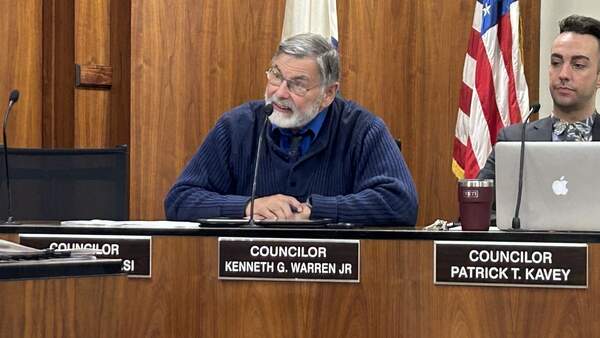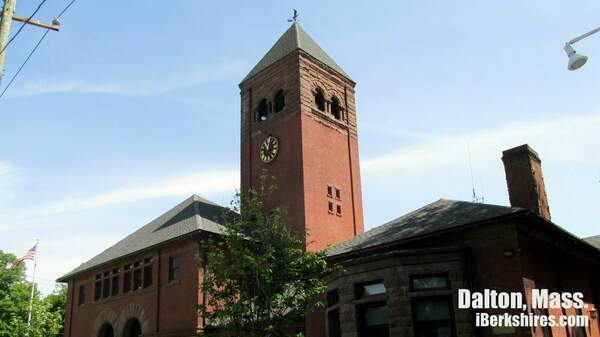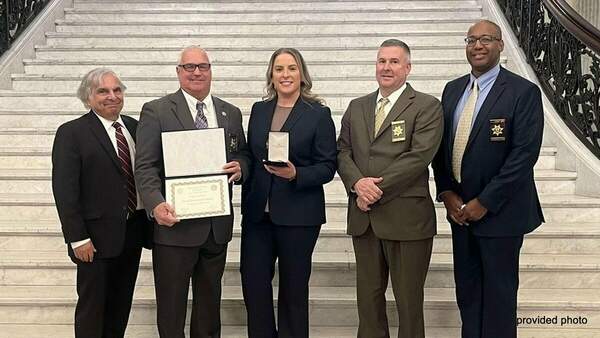BOSTON, Mass. — The state's January total unemployment rate was 3.0 percent, down 0.2 percentage point from the revised December estimate of 3.2 percent, the Executive Office of Labor and Workforce Development announced Friday.
The Massachusetts unemployment rate was 0.7 percentage points lower than the national rate of 3.7 percent reported by the Bureau of Labor Statistics (BLS). Over-the-year, the state's seasonally adjusted unemployment rate was down by 0.5 percentage points.
The labor force grew by an estimated 400 from the revised estimate of 3,749,900 in December, with 8,000 more residents employed and 7,600 fewer residents unemployed over-the-month. The state's labor force participation rate – the total number of residents 16 or older who worked or were unemployed and actively sought work in the last four weeks – remained at 64.9 percent over-the-month. Compared to January 2023, the labor force participation rate was down 0.1 percentage point.
Annual year-end revisions and updated population controls from the U.S. Census Bureau resulted in changes to the labor force estimates from 2019 to 2023, with the most notable revisions in 2023. The revisions in 2023 resulted in an increase in the unemployment rate from previously published estimates, ranging from 0.1 to 0.7 percentage points during the months of April to November, with the largest revision of 0.7 percentage points occurring in June to September. Compared to previously published estimates in 2023, the annual revisions showed an increase in the labor force estimates for all months, ranging from 0.2 percent to one percent, with the highest revision occurring in September.
The BLS preliminary job estimates indicate Massachusetts gained 18,300 jobs in January. This follows December's revised gain of 4,600 jobs. The largest over-the-month private sector job gains were in Professional, Scientific, and Business Services, Leisure and Hospitality, and Education and Health Services. Employment now stands at 3,739,400. Massachusetts gained 675,900 jobs since the employment low in April 2020.
From January 2023 to January 2024, BLS estimates Massachusetts gained 25,800 jobs. The largest over-the-year gains occurred in Education and Health Services, Leisure and Hospitality, and Government.
January 2024 Employment Overview
Professional, Scientific, and Business Services gained 6,100 jobs over-the-month. Over-the-year, 1,600 were lost.
Leisure and Hospitality gained 5,000 jobs over-the-month. Over-the-year, 6,900 were added.
Education and Health Services gained 4,300 jobs over-the-month. Over-the-year, 20,600 were added.
Government gained 1,800 jobs over-the-month. Over-the-year, 4,400 were added.
Information gained 300 jobs over-the-month. Over-the-year, 3,200 were lost.
Construction gained 200 jobs over-the-month. Over-the-year, 1,300 were added.
Trade, Transportation, and Utilities gained 200 jobs over-the-month. Over-the-year, 4,300 were lost.
Other Services gained 200 jobs over-the-month. Over-the-year, 3,100 were added.
Financial Activities gained 100 jobs over-the-month. Over-the-year, 1,600 were added.
Manufacturing had no change jobs over-the-month. Over-the-year, 3,100 were lost.
Labor Force Overview
The January estimates show 3,636,100 Massachusetts residents were employed and 114,100 were unemployed, for a total labor force of 3,750,300. The unemployment rate at 3.0 percent was down 0.2 percentage points from the revised December rate of 3.2 percent. Over-the-month, the January labor force increased by 400 from 3,749,900 in December, with 8,000 more residents employed and 7,600 fewer residents unemployed. The labor force participation rate, the share of the working age population employed and unemployed, remained at 64.9 percent. The labor force was up 11,500 from the January 2023 estimate of 3,738,800 following the annual revision, with 28,700 more employed residents, and 17,100 fewer unemployed residents.
The unemployment rate is based on a monthly sample of households. The job estimates are derived from a monthly sample survey of employers. As a result, the two statistics may exhibit different monthly trends.
| If you would like to contribute information on this article, contact us at info@iberkshires.com. |















